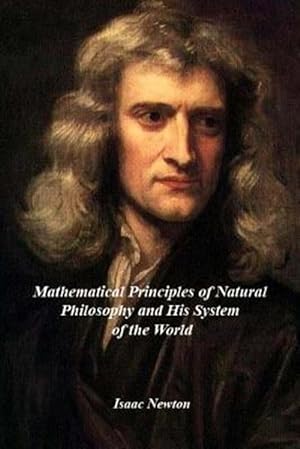Mathematical Principles of Natural Philosophy and His System of the World
Newton, Isaac, Sir
From
GreatBookPrices, Columbia, MD, U.S.A.
Seller rating 5 out of 5 stars
![]()
AbeBooks Seller since April 6, 2009
About this Item
Description:
Seller Inventory # 26372876-n
Synopsis:
Mathematical Principles of Natural Philosophy and His System of the World
About the Author:
ISAAC NEWTON was born in Woolsthorpe, Lincolnshire, England, on December 25, 1642. His father having died before his birth and his mother having remarried, Newton was sent to live with his maternal grandmother in the neighboring town of Grantham, where he attended school. An inattentive student, Newton nonetheless showed a great aptitude for making mechanical contrivances such as windmills and water clocks. While at school, Newton boarded with an apothecary, who may have imparted to the youngster a lifelong love of chemical experiments.
In 1656, following the death of her second husband, Newton's mother removed him from school and brought him back to Woolsthorpe with the idea of making her son a farmer. Newton's teacher at Grantham, recognizing the boy's talents, prevailed upon her to allow Newton to prepare for entrance to Cambridge University. He entered Trinity College, Cambridge, in 1661, under the tutelage of Isaac Barrow, Lucasian Professor of Mathematics, and took his degree four years later.
Between 1665 and 1667, Newton made great strides in his method of "fluxions" (an early form of differential calculus) and began work on gravitation. It was also at this time that Newton inaugurated his studies on the nature of light: he demonstrated that differences in color resulted from differences in refrangibility, i.e., the ability of a ray of light to bend when passed through a refracting medium. In 1667, Newton returned to Cambridge from Woolsthorpe (where he had gone to escape the plague); two years later he succeeded Barrow as Lucasian Professor. In 1672 Newton was elected to the Royal Society.
Newton's great work, Philosophiae naturalis principia mathematica, or The Mathematical Principles of Natural Philosophy (1687), grew out of his ongoing investigations into gravitation and planetary motion. Written over a period of only eighteen months, this book was immediately hailed as a masterpiece: it demonstrated how the law of gravitation could explain diverse phenomena, ranging from the tides to the irregularities of the moon's motion, and made possible a mathematical principle, unrealized up to that time, of the workings of a dynamic universe. Although Newton's system needed to be revised in the twentieth century in view of the theory of relativity and quantum mechanics, it remains valid for systems of ordinary dimensions, involving velocities that do not approach the speed of light.
Newton's contributions to science brought him fame and financial security: in addition to his professorship at Cambridge, Newton served for two years as a member of the Convention Parliament following the overthrow of King James II during the "Glorious Revolution" of 1688. In 1696 Newton was appointed warden, and later master, of the mint, a lucrative position he held until his death. In 1704 he was made president of the Royal Society, and in 1705 he received a knighthood from Queen Anne. While a member of Parliament, Newton came into contact with such luminaries as the philosopher John Locke and the diarist Samuel Pepys.
Newton's life was not without bitterness, however: a protracted controversy raged over whether Newton or Gottfried Wilhelm von Leibniz had been first in the invention of calculus, which strained scientific relations between England and the Continent. And, despite the Principia's enthusiastic reception, Newton's system would not be fully accepted among scientists and in university teaching until after his death.
Following his retirement from Cambridge in 1701, Newton prepared revised editions of the Principia (1713, 1726) and published his second great treatise, the Opticks, in 1704. He died in Kensington, England, on March 20, 1727.
Bibliographic Details
Title: Mathematical Principles of Natural ...
Publisher: CreateSpace Independent Publishing Platform
Publication Date: 2016
Binding: Soft cover
Condition: New
Top Search Results from the AbeBooks Marketplace
Mathematical Principles of Natural Philosophy and his System of the World
Seller: Best Price, Torrance, CA, U.S.A.
Condition: New. SUPER FAST SHIPPING. Seller Inventory # 9781530957071
Quantity: 2 available
Mathematical Principles of Natural Philosophy and his System of the World
Seller: THE SAINT BOOKSTORE, Southport, United Kingdom
Paperback / softback. Condition: New. This item is printed on demand. New copy - Usually dispatched within 5-9 working days 152. Seller Inventory # C9781530957071
Quantity: Over 20 available

